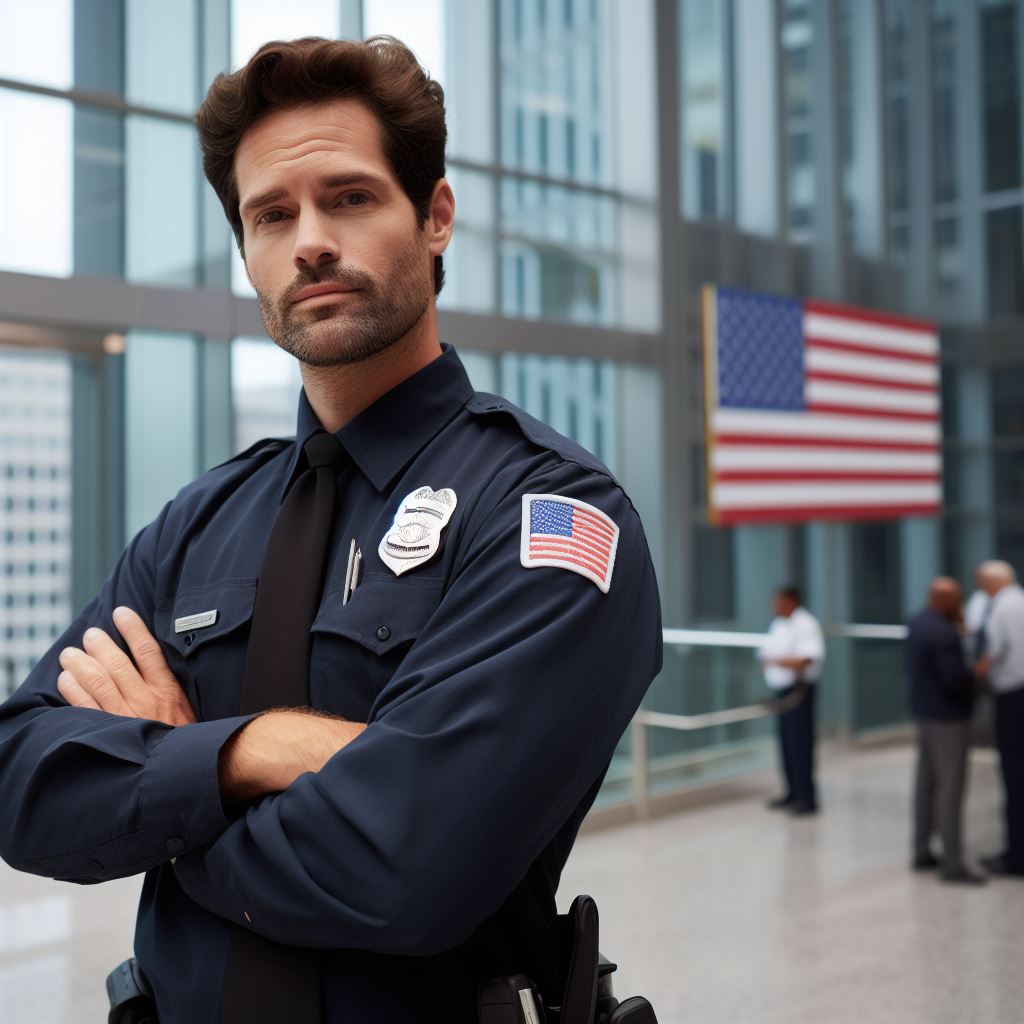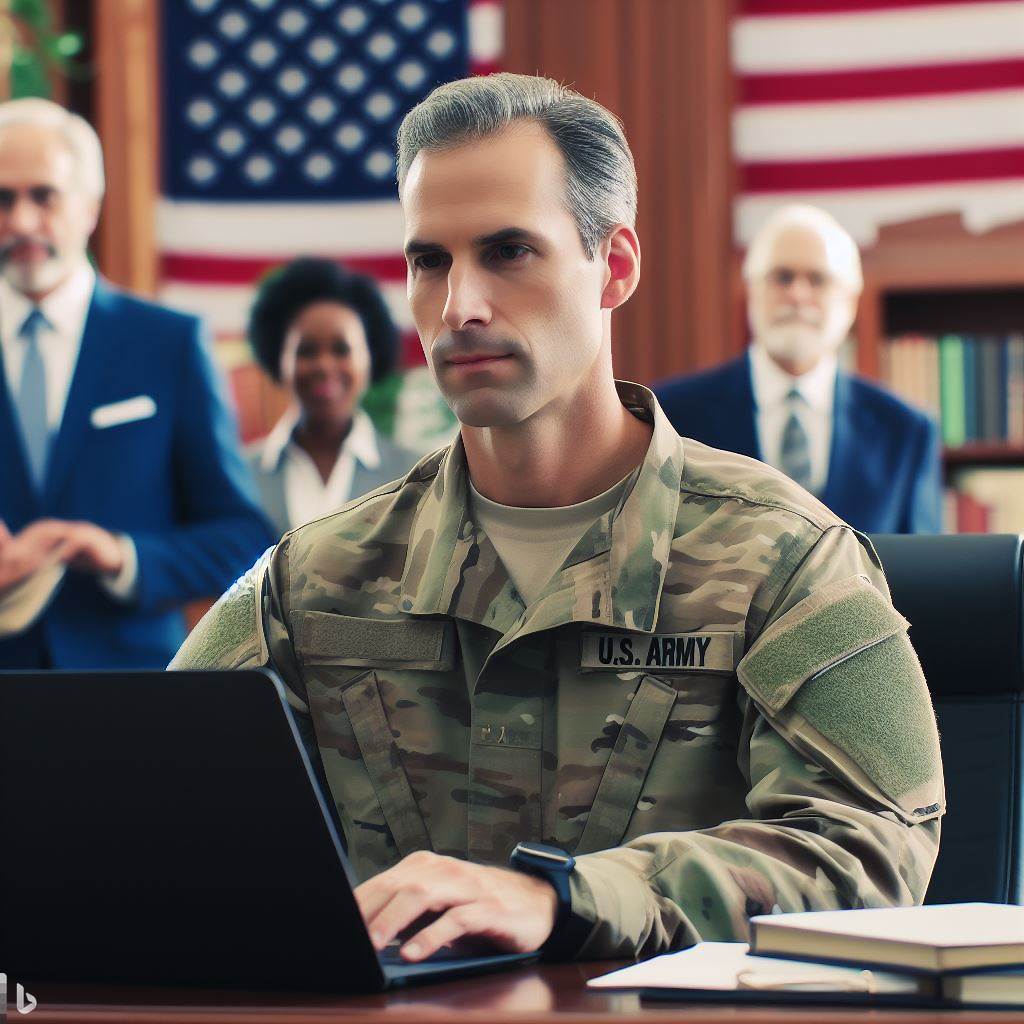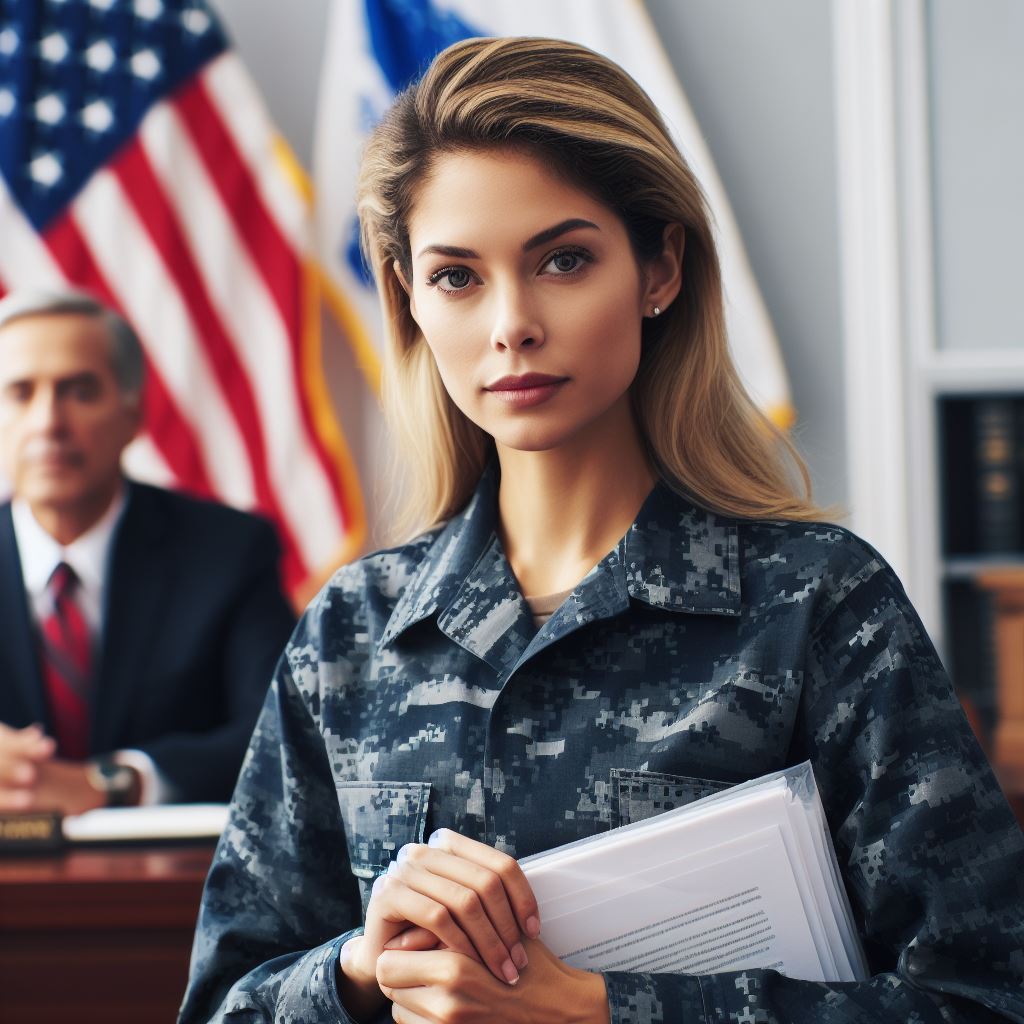Introduction
In the field of security, security guard vigilance and Courtesy is a significant challenge for U.S. security guards.
This topic is important because security guards play a crucial role in maintaining safety, but they also need to provide courteous customer service.
Striking the right balance between being highly vigilant and maintaining a friendly demeanor is essential for effective security operations.
Security guards are responsible for protecting people, property, and assets while also ensuring a positive customer experience.
Their presence and actions should deter potential threats without intimidating or alienating individuals.
Being excessively vigilant can create an unwelcoming atmosphere and make people feel uncomfortable or suspicious.
On the other hand, being overly courteous may compromise their ability to detect and respond to security risks.
The challenge lies in finding the middle ground – being both alert and approachable.
A security guard needs to be vigilant to identify any suspicious behavior or potential security breaches.
This includes monitoring surveillance systems, conducting regular patrols, and closely observing people and their activities.
Simultaneously, they must also possess excellent interpersonal skills to communicate effectively with the public, answer questions, and provide assistance.
Maintaining a balance between vigilance and courtesy ensures that security guards can effectively perform their duties while also creating a positive and safe environment.
It requires proper training and a deep understanding of security protocols and customer service principles.
By striking this balance, security guards not only protect against potential threats but also contribute to a welcoming atmosphere for everyone.
The Role of a U.S. Security Guard
A security guard is responsible for ensuring the safety and security of people and property.
They play a crucial role in maintaining order and preventing potential threats.
Responsibilities and Duties of a Security Guard
- Patrolling designated areas to detect any signs of intrusion or suspicious activities.
- Maintaining a visible presence to deter criminals and provide a sense of security.
- Monitoring surveillance systems, alarms, and access control systems.
- Responding swiftly to emergency situations, such as alarms, accidents, or disturbances.
- Writing detailed incident reports and maintaining accurate logs of activities and observations.
- Escorting individuals or vehicles when required
- Enforcing rules and regulations to ensure compliance with facility policies.
- Assisting in the evacuation procedures during emergencies and providing guidance to people.
- Working with law enforcement agencies by providing necessary information and cooperating fully.
- Ensuring the proper functioning of security equipment and reporting any malfunctions.
The Importance of Maintaining Security and Safety while Providing Customer Service:
While the primary duty of a security guard is to provide security and safety, they are also expected to offer excellent customer service.
Here’s why:
- Enhancing Customer Satisfaction: Security guards who are approachable and friendly create a positive experience for visitors, increasing satisfaction levels.
- Representing the Organization: Security guards act as ambassadors for the organization, reflecting its values and commitment to safety and service.
- Building Trust and Confidence: When security guards are helpful and courteous, it instills confidence in visitors, making them feel secure and valued.
- Conflict Resolution: Security guards often deal with conflicts or difficult situations. By handling these professionally and respectfully, they contribute to a harmonious environment.
- Effective Communication: Security guards serve as a point of contact for visitors. Clear and friendly communication helps in effectively addressing any concerns or queries.
- Emergency Response: In emergencies, security guards are the first responders. By being vigilant and providing immediate assistance, they protect individuals and minimize damage.
- Balancing Vigilance and Courtesy: A great security guard maintains a balance between being vigilant and being courteous, never compromising on security while providing excellent customer service.
- Creating a Safe Environment: By ensuring security, safety, and excellent customer service, security guards contribute to creating a safe and comfortable environment for everyone.
- Preventing Security Breaches: Diligent security guards who monitor and report suspicious activities, deter criminals, and follow security protocols help prevent security breaches.
- Tackling Emergencies: Trained security guards are equipped to handle various emergencies, including medical incidents, evacuations, or fires, ensuring a swift and efficient response.
Essentially, the role of a U.S. security guard encompasses a wide range of responsibilities, from maintaining security and safety to providing exceptional customer service.
By vigilantly fulfilling their duties and balancing the importance of security with courtesy, security guards play a vital role in maintaining a secure and welcoming environment.
Vigilance: The Critical Aspect of Security
In the role of a security guard, vigilance plays a significant role in maintaining a safe and secure environment.
This crucial aspect requires security guards to be constantly alert and attentive to ensure the protection of people and property.
Importance of Vigilance
- Vigilance is essential for a security guard as it helps in detecting potential threats and preventing security breaches.
- Being attentive allows security guards to proactively identify suspicious behavior or activities.
- Observant guards can closely monitor CCTV cameras, effectively ensuring surveillance.
- Quick response to potential threats enables security guards to minimize risk and prevent harm.
Enhancing Vigilance Skills
- Security guards can participate in regular training programs to improve their vigilance skills.
- Practicing situational awareness enhances a guard’s ability to detect and preempt potential threats.
- Maintaining good physical and mental health is crucial for heightened attentiveness.
- Communication skills are vital as guards need to report suspicious activities accurately.
- Utilizing technology such as surveillance systems and alarm systems enhances a guard’s vigilance.
- Establishing a strong network with fellow security professionals allows for information sharing and collective vigilance.
Vigilance is not merely a responsibility but also a mindset that security guards must adopt.
By staying alert and maintaining a constant state of readiness, they can effectively deter threats and ensure the safety of individuals and assets.
Read: Veterans Transitioning to Security Roles: A Guide for the U.S. Market
Courtesy: The Importance of Customer Service
Providing courteous service to clients, visitors, and employees is of paramount importance in the role of a security guard.
Not only does it enhance the overall experience for everyone involved, but it also contributes to a positive and safe environment.
By fostering a culture of kindness and respect, security guards can effectively fulfill their duties and responsibilities.
The Significance of Courteous Service
Courteous service is an essential aspect of customer service, regardless of the industry.
As security guards, our primary responsibility is to ensure the safety and security of the premises we protect.
However, by treating everyone with respect and kindness, we go beyond our core duties and create a welcoming atmosphere.
When clients, visitors, and employees feel valued and appreciated, they are more likely to cooperate and support security efforts.
This can range from promptly following instructions and guidelines to reporting suspicious activities or potential threats.
By establishing a positive rapport, security guards can foster a sense of trust and cooperation, which greatly assists them in their tasks.
Contribution to a Positive and Safe Environment
A security guard’s courteous behavior plays a vital role in maintaining a positive and safe environment within the premises.
It sets the tone for interactions and ensures that individuals feel safe and secure throughout their time at the facility.
When security guards are approachable and friendly, clients, visitors, and employees are more likely to seek their assistance or report concerns.
This leads to early detection and prevention of potential security risks, as individuals feel comfortable reaching out for help when needed.
Courtesy also enhances the overall perception of security within the premises.
It creates a welcoming atmosphere that encourages individuals to adhere to safety protocols and guidelines, reinforcing a culture of security awareness.
Examples of Courteous Actions and Behavior
There are numerous courteous actions and behaviors that security guards can practice to enhance customer service.
These include:
- Greeting individuals with a warm smile and a friendly demeanor upon arrival.
- Offering clear directions and assistance when individuals are unfamiliar with the premises.
- Listening attentively to concerns and addressing them promptly and professionally.
- Showing patience and empathy when dealing with individuals who may be frustrated or upset.
- Ensuring that interactions are conducted respectfully, regardless of a person’s background or appearance.
- Being proactive in anticipating and meeting the needs of clients, visitors, and employees.
- Expressing gratitude for cooperation and assistance provided by individuals.
By consistently implementing such courteous actions, security guards can contribute to an environment where everyone feels safe, valued, and respected.
In closing, courtesy is a fundamental aspect of a security guard’s role. It significantly contributes to the overall customer service experience and fosters a positive and safe environment.
By embracing courteous behavior and practicing it consistently, security guards can enhance their effectiveness in fulfilling their duties and cultivating a strong security culture.
Transform Your Career Today
Unlock a personalized career strategy that drives real results. Get tailored advice and a roadmap designed just for you.
Start NowRead: Physical Fitness Standards and Tips for U.S. Security Guards

The Challenge of Balancing Vigilance and Courtesy
When it comes to the role of a security guard, balancing vigilance and courtesy can be a challenging task.
On one hand, security guards are responsible for maintaining the safety and security of a location. On the other hand, they are also expected to provide excellent customer service.
However, there is an inherent conflict between these two objectives that can make this balancing act difficult.
In this section, we will address this challenge and discuss the potential difficulties security guards may face in trying to balance vigilance and courtesy.
We will also highlight the potential consequences of neglecting either aspect.
The Inherent Conflict: Security vs. Customer Service
Security guards play a crucial role in preventing and responding to security threats.
They must always be vigilant, constantly monitoring their surroundings for any signs of suspicious activity.
This requires focusing on their primary duty of maintaining security.
However, at the same time, security guards are often the first point of contact for visitors or customers.
They need to provide assistance, answer questions, and maintain a friendly and welcoming atmosphere.
This inherent conflict between security and customer service can create tension and challenges for security guards.
Striking the right balance between being vigilant and courteous is not always easy.
Each situation requires a judgment call, and it can be difficult to determine how much emphasis to place on one aspect over the other.
Potential Difficulties in Balancing Vigilance and Courtesy
- Time management can pose difficulties as security guards must juggle their responsibilities.
- Dealing with difficult individuals or situations while maintaining a professional and courteous approach.
- Challenges arise when trying to prioritize security tasks while addressing customer inquiries or requests.
- Navigating situations where security measures may inconvenience or offend individuals, requiring delicate handling.
- Maintaining constant alertness while also keeping a friendly and approachable demeanor.
These difficulties can put security guards under immense pressure. They must be able to adapt and switch between the roles of a security enforcer and a friendly service provider, often within seconds.
The Consequences of Neglecting Vigilance or Courtesy
Ignoring either vigilance or courtesy can have severe consequences. Neglecting vigilance may compromise the security of a location or endanger the safety of individuals.
Security guards must remain attentive, respond swiftly to potential threats, and follow protocols to prevent incidents from occurring.
On the other hand, neglecting courtesy can lead to negative experiences for visitors or customers. Being rude or dismissive can harm a company’s reputation and lead to lost business opportunities.
Security guards, therefore, need to ensure that their interactions are always professional, polite, and respectful.
Ultimately, the challenge of balancing vigilance and courtesy is an ongoing struggle for security guards. It requires constant awareness, adaptability, and the ability to make quick decisions.
Understanding the potential difficulties and consequences of neglecting either aspect is essential for security guards to succeed in this challenging role.
By finding the right balance, security guards can provide both effective security measures and exceptional customer service.
Read: Networking Opportunities for Security Professionals in the USA
Strategies for Balancing Vigilance and Courtesy
Effective Communication
- Prioritize clear and concise communication to ensure all security protocols are understood and followed.
- Maintain an open-door policy and encourage staff to report any suspicious activities or concerns promptly.
- Use active listening techniques to show empathy and address any potential security issues with urgency.
- Foster a positive work environment by promoting respectful and professional interactions among team members.
Time Management
- Implement efficient scheduling systems to ensure appropriate staffing levels for different security zones.
- Prioritize tasks based on urgency and allocate time for routine patrols and inspections.
- Utilize technology such as time-tracking apps to monitor guard presence and optimize response times.
- Provide tools and resources to security guards for effective time management, such as checklist apps or digital calendars.
Situational Awareness
- Encourage guards to constantly assess their surroundings and remain attentive to any potential security threats.
- Train guards to recognize common suspicious behaviors and report them to appropriate authorities.
- Promote regular security briefings to enhance situational awareness, covering potential vulnerabilities Utilize security technology, such as surveillance cameras and alarms, to enhance situational awareness.
Training and Development Programs
- Develop comprehensive training programs that focus on both technical skills and interpersonal communication.
- Arrange simulation exercises to help guards practice making quick decisions while maintaining professionalism.
- Provide ongoing training on conflict resolution, de-escalation techniques, and customer service skills.
- Foster a culture of continuous learning and improvement, offering opportunities for career advancement and specialization.
In the challenging role of a security guard, balancing vigilance and courtesy is crucial for maintaining safety and fostering positive relationships.
Implementing effective communication, time management, and situational awareness empowers security guards to fulfill responsibilities, creating a secure, respectful environment through training programs.
Read: Impact of COVID-19 on Security Guard Services in the United States
Discover More: Legal Boundaries: What US Detectives Can and Can’t Do
Conclusion
In this blog post, we have explored the challenge faced by U.S. security guards in balancing vigilance and courtesy.
We have discussed how striking the right balance is crucial in ensuring effective security measures while maintaining a positive and respectful environment.
It is evident that finding the right equilibrium between vigilance and courtesy is of utmost importance for security guards.
By being vigilant, security guards can effectively detect and prevent any potential threats or security breaches.
On the other hand, showing courtesy and empathy towards individuals can help create a welcoming and safe environment.
To excel in their profession, security guards must continuously improve their skills in both aspects.
This can be achieved through regular training programs that focus on enhancing their vigilance skills, such as learning about current security threats and trends.
Additionally, they should also receive customer service training to enhance their communication and interpersonal skills.
By mastering the art of balancing vigilance and courtesy, security guards can not only fulfill their primary duty of ensuring safety but also contribute to a positive and welcoming atmosphere.
They play a critical role in creating a secure environment while still treating individuals with respect and compassion.
To Summarize, security guards must find the right balance between vigilance and courtesy. It is not a matter of favoring one over the other, but rather integrating both aspects seamlessly.
By continuously honing their skills in both areas, security guards can truly excel in their profession, providing top-notch security while also fostering a welcoming environment for all.




